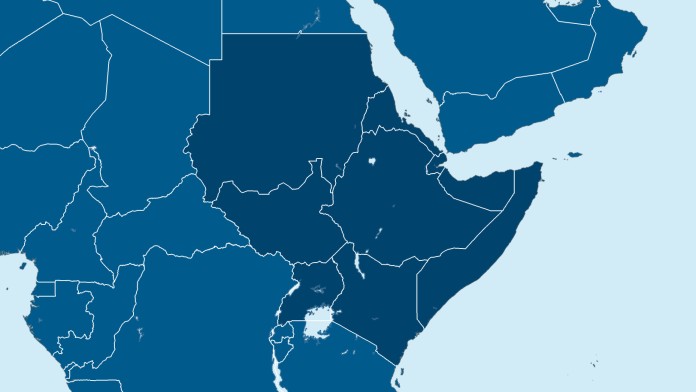
The Intergovernmental Authority on Development (IGAD) is a merger of currently eight states in the Horn of Africa, namely Djibouti, Eritrea (membership currently suspended), Ethiopia, Kenya, Sudan, Somalia, South Sudan, Uganda. It was founded in 1996 and has its headquarters in Djibouti.
The most important tasks of IGAD concern
The devastating drought in the Horn of Africa in recent years is not the first one. Extreme weather events are common in the Horn of Africa and can result in famine and displacement. The region is regarded worldwide as the area with the greatest food insecurity and ecological vulnerability. The number and intensity of climatic shocks are increasing. People living in nomadic pastoralism are particularly affected by drought. Their traditional way of life has been very well adapted to the natural environment for centuries, but it is under increasing pressure, in particular from the consequences of climate change. Droughts and floods mean that more and more people are being displaced from their country and lose their livelihoods.
On behalf of the German Federal Ministery for Economic Cooperation and Development (BMZ), KfW is collaborating with IGAD as a strategic partner in two areas:
In cooperation with the people on the ground, water retention basins, earth walls to protect against erosion, marketplaces, rural roads and further infrastructure works are being built. The aim is to improve living conditions for the frequently nomadic population in selected border regions in the IGAD region.
Through the Regional Migration Fund, KfW finances municipal economic and social infrastructure in selected border regions as well as refugee camps and host communities. The funds are used, among other purposes, to build marketplaces, training centres, water supply facilities and to rehabilitate small roads. The project sites are selected in coordination with IGAD, the member states and the BMZ.
KfW Regional Office Horn of Africa (Djibouti, Eritrea, IGAD, Somalia, South Sudan, Sudan)
Director KfW Office: Daniela-Henrike Klau-Panhans
Riverside Square Building, 8th Floor
Riverside Drive
P.O. Box 52074
00200 Nairobi
Kenya
+254 20 760 5340
Fax: +25 42 04 22 82 22
Share page
To share the content of this page with your network, click on one of the icons below.
Note on data protection: When you share content, your personal data is transferred to the selected network.
Data protection
Alternatively, you can also copy the short link: https://www.kfw-entwicklungsbank.de/s/enzBY5Qy
Copy link Link copied